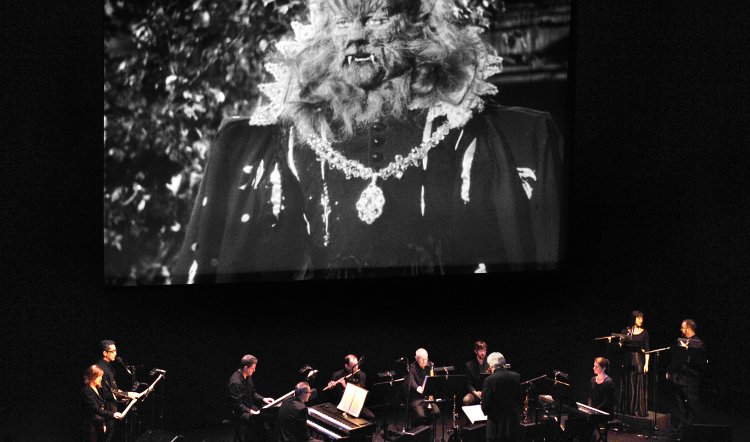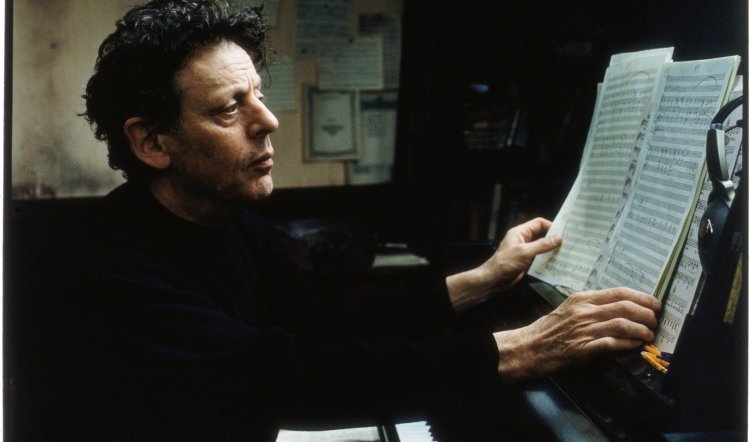
MELBOURNE FESTIVAL - LA BELLE ET LA BETE
LA BELLE ET LA BETE, Elizabeth Murdoch Recital Hall, Melbourne Festival, 8 October 2016.
BY MICHAEL FREUNDT
(Phillip Glass Ensemble, Music: Phillip Glass, film: Jean Cocteau, conductor: Michael Reisman; singers: Hai-Ting Chinn, Martie Mascari, Gregory Purnhagen and Peter Stewart.)
Many years ago when I was hatching my musical taste I was trying to come to terms with 12-tone music, so-called atonal music, where all 12 notes in a sequence are given equal importance. There didn’t seem anywhere else for music to go, so 12 tone looked like it was going to stay. I listened to works by Aaron Schoenberg, Milton Babbitt, Luciano Berio, and Pierre Boulez but found them cold, objective, and stark, which, I now think, was the point; but at the time I felt a little lost.
Music, and the enjoyment of it, has a lot to do with patterns and there seemed to be none in this music. I persisted but with little reward. When I first heard Phillip Glass – I was driving a car – I had to pull over and take it in. I got very excited: here was somebody – I’d never heard of him – doing something new with tonal music. Since then, of course, Glass has become a musical hero of mine and he has had an enormous impact on modern musical and intellectual life and continues to do so.
The original story of La Belle et la Bête (Beauty and the Beast) comes from Mme Leprince de Beaumont’s Magasin des enfants of 1756 and it has survived many treatments to this day; the most famous being the Disney version, an animated feature, and then a $12 million Broadway musical. But here it is the 1946 film version by Jean Cocteau starring Jean Marais and Josette Day.
Glass has removed the original music and dialogue from the film and written it as an oratorio, performed live against the black and white film. This is festival fare at its richest. According to Glass it will be seen, he hopes, as a “theatrical event not a cinematic event”.

Unfortunately, no. The vocal lines match the erased dialogue but the film itself takes a little getting used to: the melodramatic acting style and the attempts at special effects, crude by today’s standards, compel more effort be put into the suspension of disbelief. It's a fairytale and Cocteau tries to make it as believable as possible but with shaky results.
With the audience's focus on the screen, the music takes second place as background, and the singing style is also, but probably by necessity, less dramatic, leaving the audience to make the necessary emotional connection between words and action. As a cinematic experience I kept wondering about the effect of the original score by Georges Auric, a member of the famous Le Six, and a frequent Cocteau collaborator.
As a musical experience, which is what I expected, it also fell short as mentioned above; as a cinematic experience, it was archival and forged out of curiosity; and as a theatrical experience, well, that wasn’t on the stage but on the screen. As we see from strangers in a lift when all eyes are on the digital numbers as they change, everything falls into second place behind a moving image.
It’s billed as a “unique synthesis of opera and film” and now I know why it isn’t attempted more often.
Comments
Leave a Comment
Enter your username and password to comment. Don't have a username? Register now.




Be the first to leave a comment below